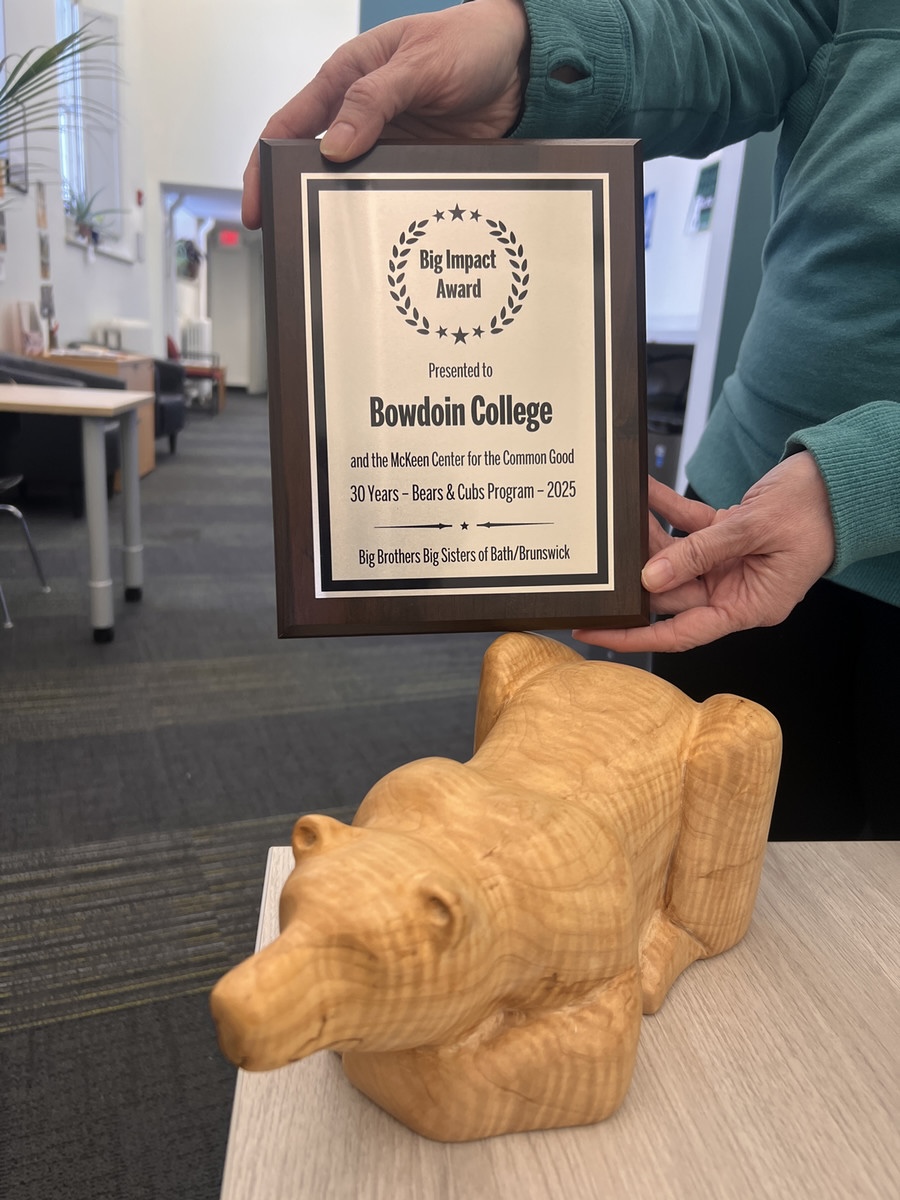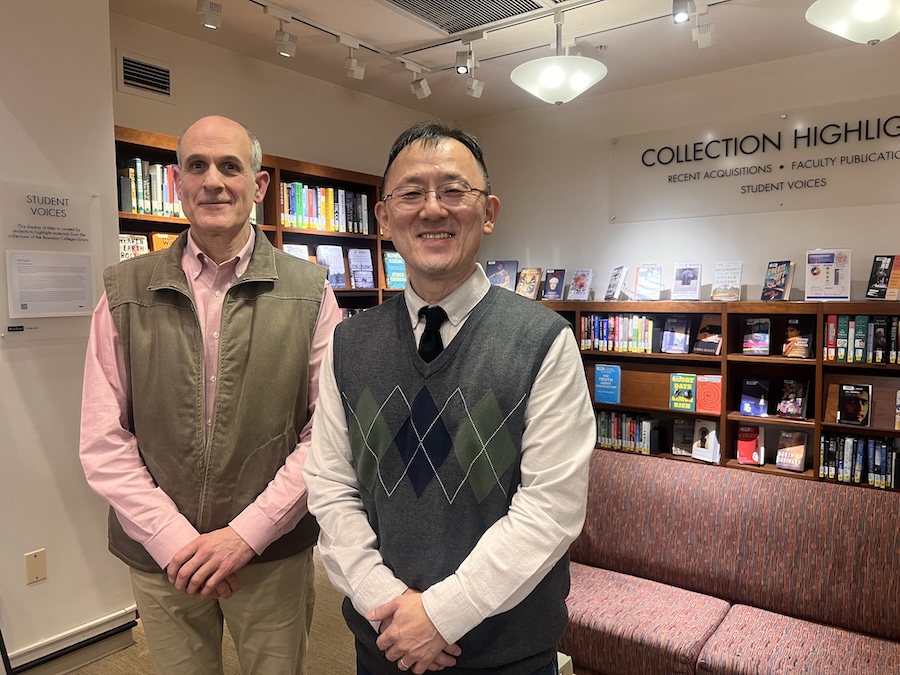Bowdoin Sophomore Develops Easy-to-Make Wheelchair Ramps from Recycled Plastic
By Brooke Landry ’27Growing up in the Zimbabwean community of Riverside, on the outskirts of Harare, Mukudzei Seremani ’28 was accustomed to navigating uneven sidewalks and unpaved roads on foot.
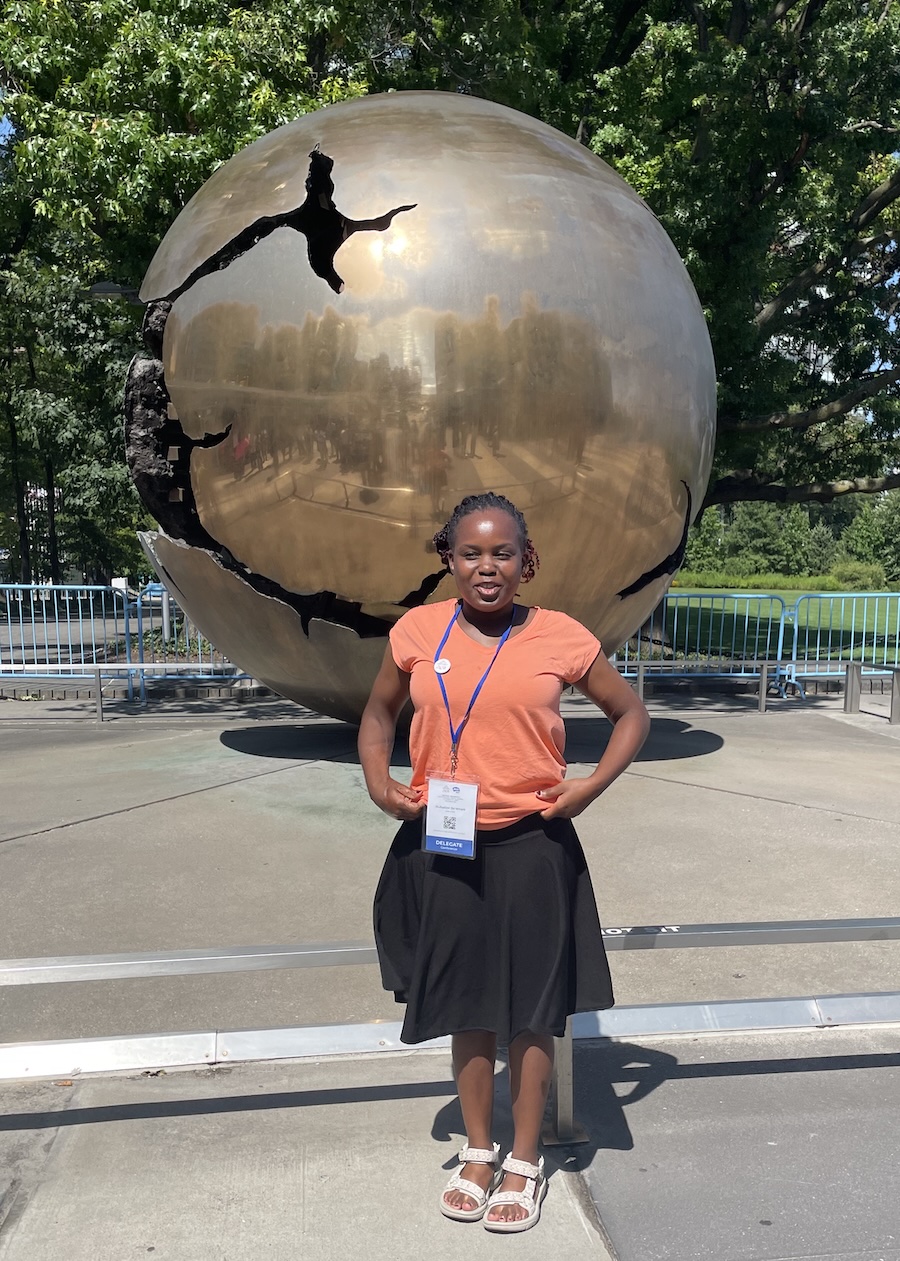
But after being struck by a vehicle in 2022, an accident that left her with six pelvic fractures, Seremani had to rely on a wheelchair for mobility as she convalesced. She got a small taste of what life is like for lifelong wheelchair users.
“I was just bored,” she recalled, “because while my friends could come visit me, I couldn’t go visit them. The roads were bad, and houses didn’t have the facilities for wheelchair access.”
Using the device for about a month and a half made Seremani acutely aware of the barriers facing people with disabilities in her community. She decided to do something to help.
She started by researching accommodations for wheelchair users by interviewing a pool of people with disabilities in her community. She found that “65 percent said government policies aren’t really in place, 40 percent said the infrastructure is bad, and 5 percent said wheelchairs are too expensive.” The cheapest wheelchairs cost about $600, a significant financial hurdle for many families.
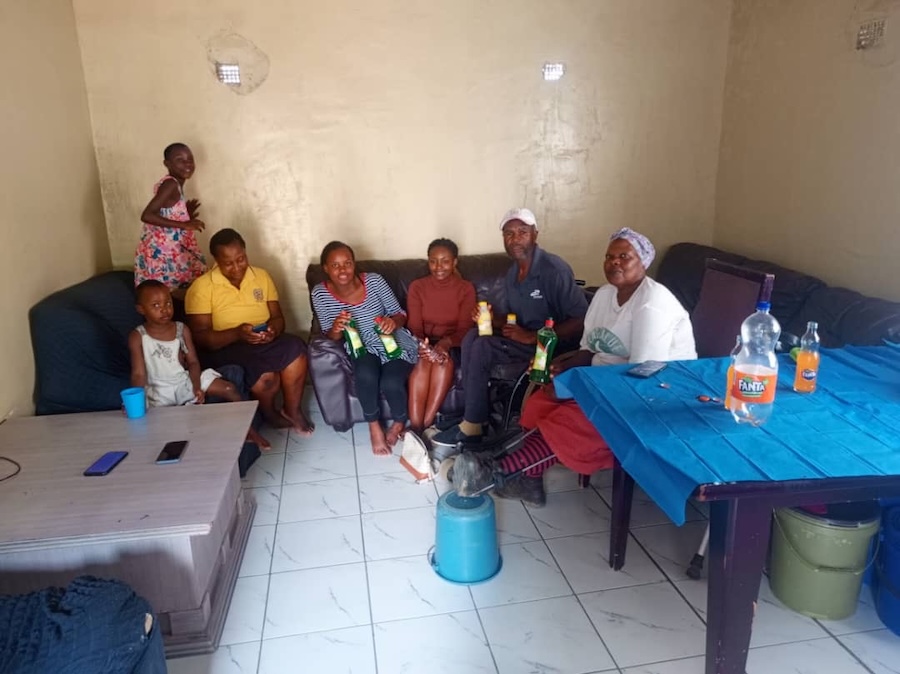
To pilot a program teaching others how to build the ramp, she received a small grant of $100 per month for six months ($600 total) from Education Matters, a nonprofit affiliated with her high school, as a capstone fellow.
Working with her five local participants who use wheelchairs, Seremani began the process by boiling the plastic in large vats to melt it. They then shaped the soft plastic in molds made from crates that are used in local markets to hold produce. After several trials, they came up with a model that was sturdy enough to work; in other words, it didn’t break when a wheelchair rolled over it.
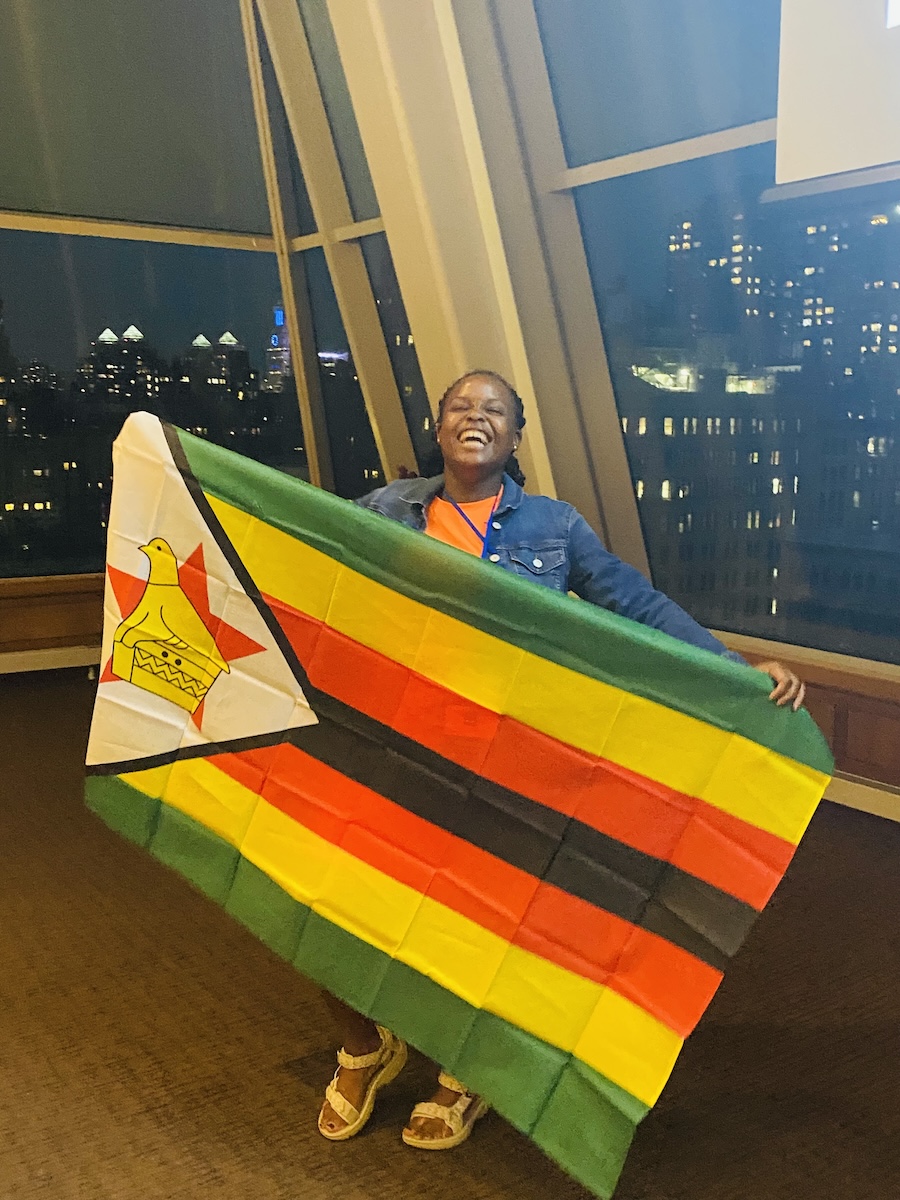
At the same time, Seremani taught the group how to make dishwashing liquid, to give them a possible stream of income.
“Most people in our area want to work with their hands, but because they can’t move around easily, they can’t access the market,” she said. The next step is to figure out how to ensure they can sell the dishwashing liquid, a project she’s currently working on.
Based on this experience, Seremani was nominated by her high school—USAP Community School—to attend the 2025 AFS Youth Assembly in New York City this August. Bowdoin helped fund her trip.
The assembly attracts young leaders from around the world focused on the United Nations sustainable development goals. Over three days, participants explored global issues ranging from women’s leadership to environmental sustainability and public health. Seremani represented her culture in traditional dress, sharing a photo with the Zimbabwean flag alongside two peers also working on community projects back home.
“The Youth Assembly was spectacular,” she said. “It was so much fun. Being surrounded by young leaders from eighty-three countries, all trying to make an impact in their communities, was inspiring. It made me feel hopeful for the world. So many young people have so much to give.”
At Bowdoin, Seremani is pursuing a double major in biochemistry and sociology, with the goal of a career in public health advocacy.
She discovered Bowdoin after working with alumna Selena Lorrey ’16 on cervical cancer research in the summer of 2023—a project funded by Polygence, a research program for high schoolers. That project involved translating health information about cervical cancer into both English and Shona, her native language, to break language barriers and promote health equity in her community.
Last summer, Seremani was awarded a grant from the Bowdoin Summer Research Fund to complete an eight-week research project with Associate Professor of Biology and Biochemistry Anne McBride. Her work, conducted alongside Songa Rwamucyo ’27, focused on Candida albicans, a microscopic fungus that can cause a range of human infections. They investigated the She3 protein, a key player in the biological mechanisms contributing to pathogenicity in C. albicans. That experience deepened her interest in public health, oncology, and advocacy-focused research, she said.
Beyond the lab, Seremani is committed to community engagement. This semester, she will serve as a community projects program assistant for Bowdoin’s McKeen Center for the Common Good, supporting student-led initiatives that strengthen connections between the College and surrounding communities.
Looking forward, she hopes to carry out her Global Citizens Fellowship in Nigeria during the summer of 2026, working on a rural health initiative. (She had initially planned to pursue this work this summer but chose to defer.)
In the long term, Seremani wants to expand her Zimbabwean project into a nonprofit that addresses systemic barriers for people with disabilities. “A wheelchair ramp is useful,” she said, “but if the systems aren’t there, the same problems remain. I want to create infrastructure and support that really allows people to feel included in their communities.”
Seremani’s experiences last summer and this one have given her momentum to continue blending her scientific, sociological, and leadership skills. “With collaboration and creativity, we can make communities more inclusive, both at home and globally,” she said.

